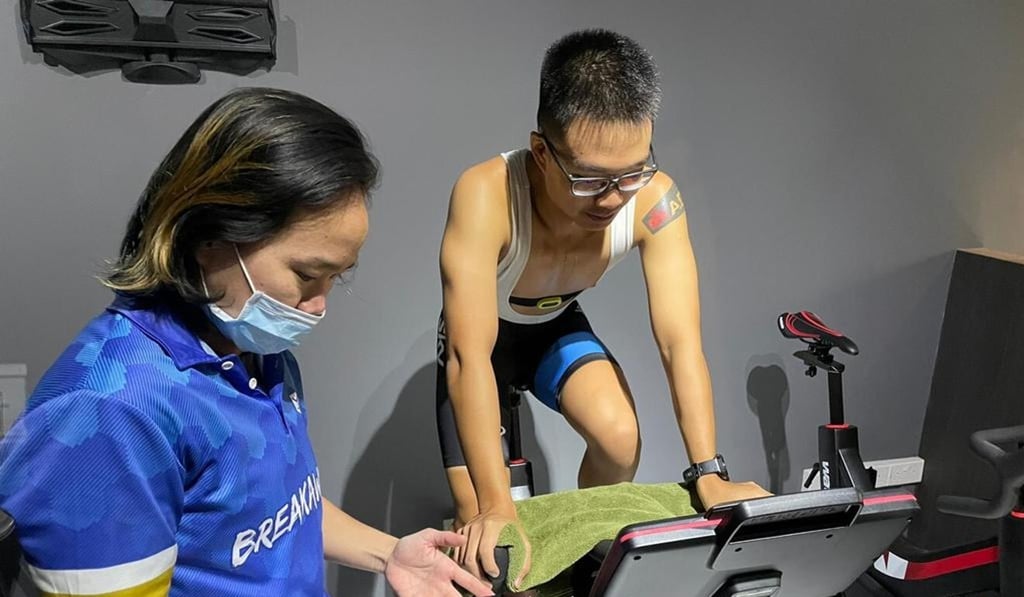How Singapore’s Breakaway Triathlon Club is adapting to a pandemic-affected world by becoming ‘digital disrupters’
- Co-founder and head coach Lee outlines country’s lack of registered sports clubs and explains need for ‘hybrid route’
- ‘I would still incorporate this when everything is back to normal,’ said national champion and club member Chong

Reality has long set in for Singapore’s athletes and coaches as gyms and sports facilities continue to gather dust amid another spike in Covid-19 cases.
For Breakaway Triathlon Club, founded by Yizhong Aw, Jacob Low and Eugene Lee in 2018, it was time to think outside the box. A year and a half of stuttering starts was neither physically nor financially sustainable.
“The first wave of Covid-19 last year really put us offline so we decided to return with the focus on reaching out to club members with coaching alternatives, not just face-to-face,” said community head coach Lee, a World Triathlon facilitator with nearly two decades of experience in grass roots and performance triathlon, before mentioning a buzzword born during these unprecedented times.

“We opened and were disrupted, opened and disrupted. So we set out on this ‘phygital’ programme, which is basically a hybrid of engaging members both physically as well as online.”